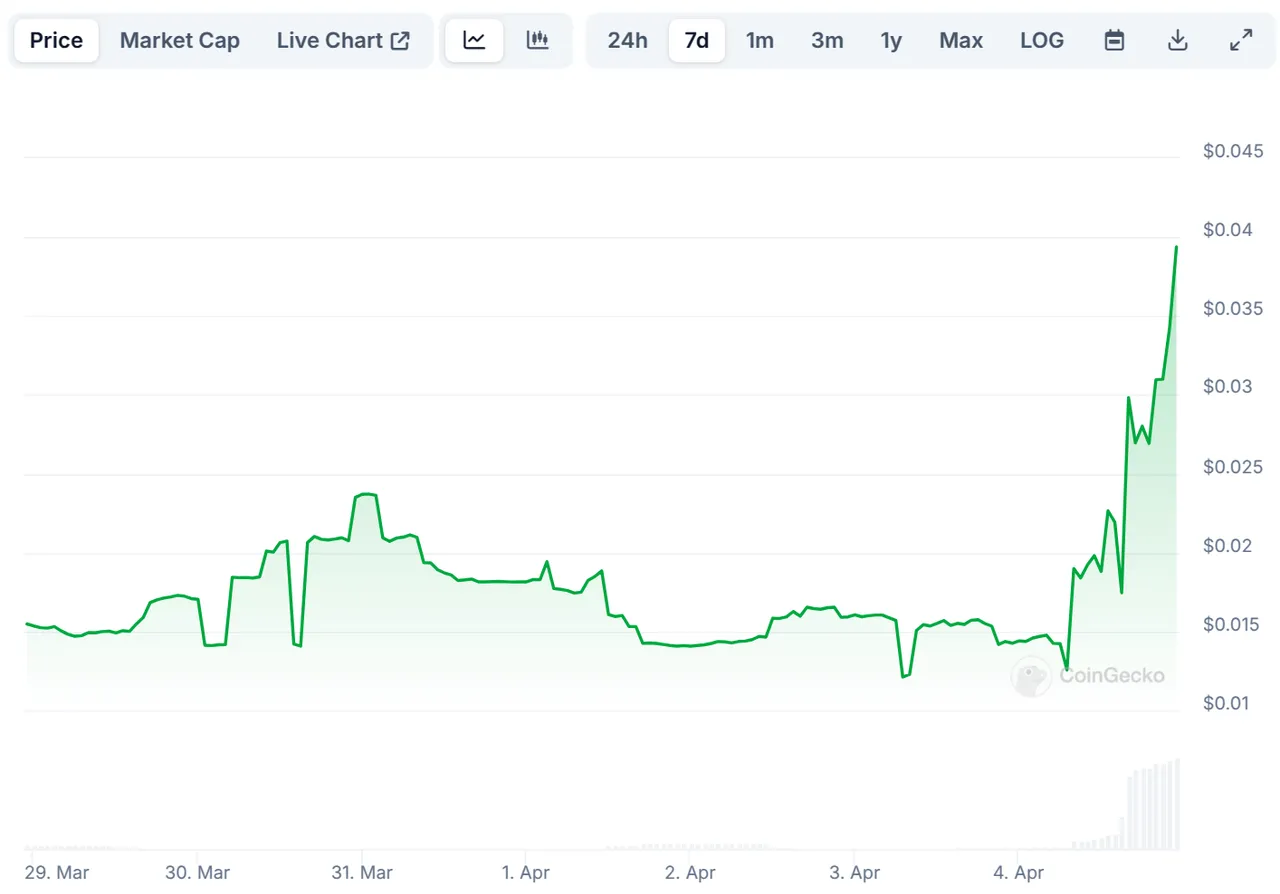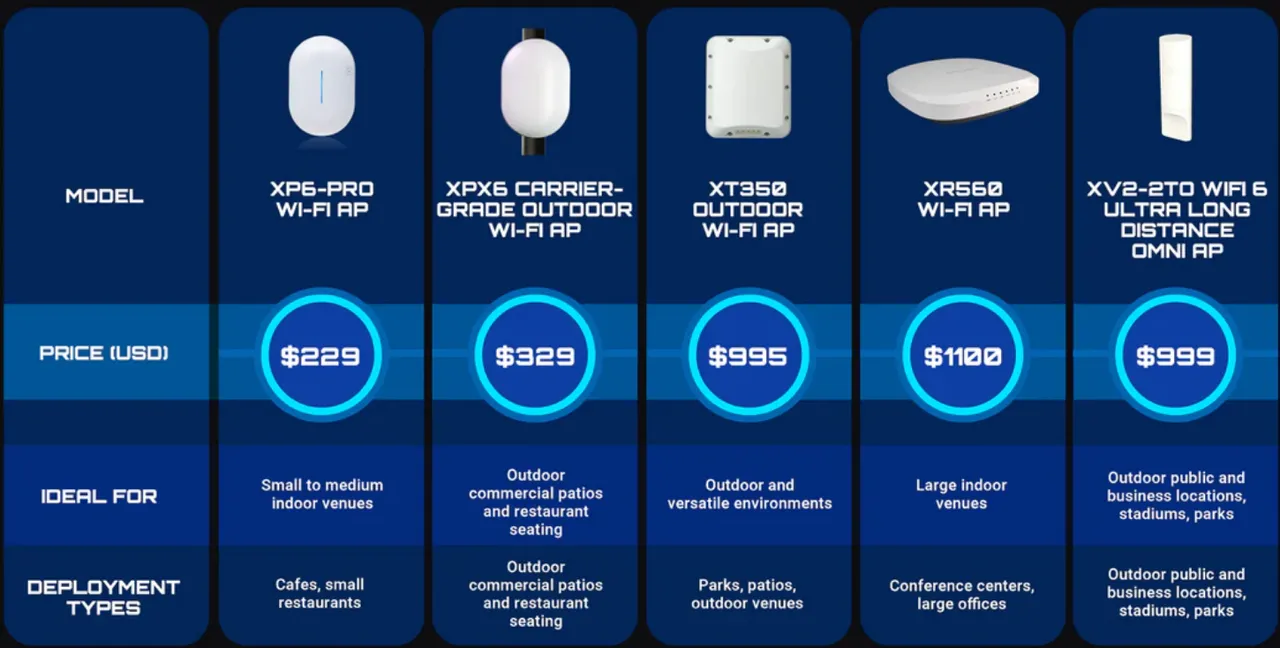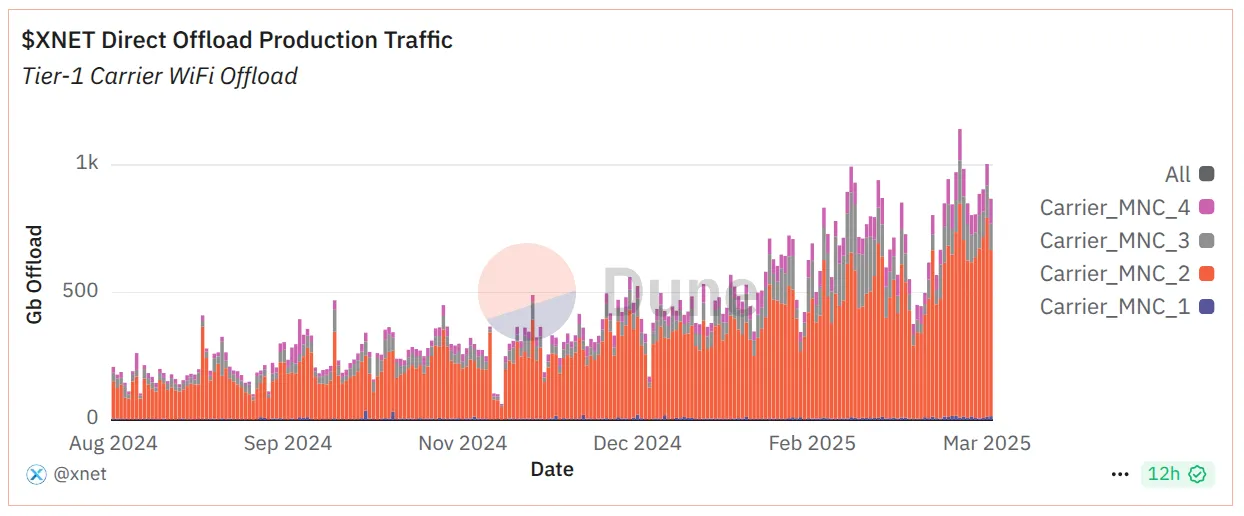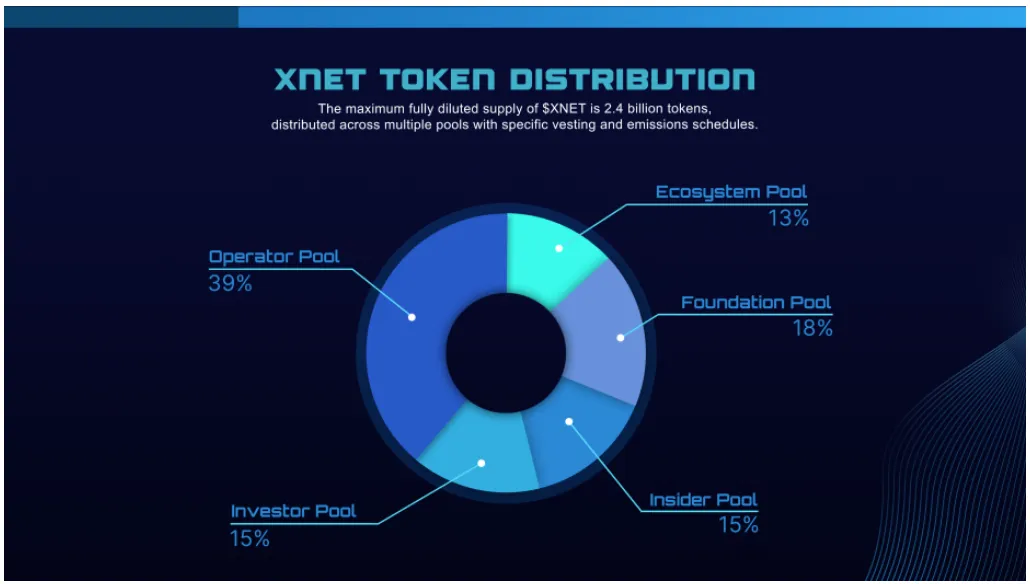XNET, a Decentralized Physical Infrastructure Network (DePIN) project that uses token incentives to roll-out wireless hotspots, announced today that they have officially partnered with AT&T to offload data from the carrier's mobile network.
The $XNET token price jumped on the news from $0.012 to $0.039.

Why XNET
As apps like X, TikTok, and Instagram skyrocket in usage, mobile data demand is expected to double by the end of 2026, and existing telecom infrastructure is failing to keep up.
XNET's objective is to meet the increasing demand by using token incentives to build out a decentralized network of hotspots that mobile carriers can use to offload data from their overburdened cellular towers.
How XNET Works
XNET operates on a circular token-based economy.
Independent node operators earn Solana-based $XNET tokens for installing and maintaining wireless hotspots in high-traffic areas such as shopping malls, restaurant franchises, and sports stadiums.

These hotspots provide additional coverage and bandwidth to mobile operators like AT&T, who save money by offloading customers from their towers to this decentralized infrastructure.
The process is entirely seamless from the perspective of the AT&T subscriber.
Using a technology called passpoint, the customer's phone is automatically connected to an XNET hotspot when it comes into range, relieving any nearby congested cellular towers.
AT&T pays fiat currency to XNET to use the network. XNET then spends the majority of that revenue (80%) on buying and burning the $XNET token, driving value back to the token holders.
As per stats from Dune, the carrier offload onto XNET has been increasing steadily since last August, indicating that this may be a project worth keeping an eye on:

Tokenomics
XNET originally minted their token on the Polygon blockchain, but migrated it to Solana last year citing its speed, scalability, and thriving DePIN community.
Only 39% of the total token supply has been set aside for node operators (mining), with the rest being allocated to the ecosystem, investors and foundation.

This concentration of the token supply among insiders has the potential to negatively affect token price and governance in the future, as well as hinder personal initiative as the community may expect the foundation to do most of the work.
Both Mint and Freeze authority for the XNET token are set to N/A, meaning the team cannot increase the token supply or freeze certain accounts.
XNET is similar in concept to Helium mobile - the very first DePIN project.
Helium
Back in 2019, Helium came up with the idea to reward node operators in HNT tokens for installing and maintaining LoRaWAN access points to service IoT devices.
In 2021, they expanded to providing 5G coverage with community-run radios, but now focus primarily on rolling out WiFi hotspots for mobile carrier offload, similar to XNET.
In a previous article, we covered how Helium has also been offloading an increasing amount of data from major telecom providers onto their decentralized wireless network.
Until next time...
If you learned something new from this article, be sure to check out my other posts on crypto and finance here on the Hive blockchain. You can also follow me on InLeo for more frequent updates.
Futher Reading
- Three Up-And-Coming DePIN Projects On The Solana Blockchain
- DePIN On The Rise As Telecom Providers Start Offloading Data To The Helium Network
- Why Fair Token Distribution Is Crucial To Effective Blockchain Governance
Sources
Blockworks article [1]
Interview with Big Shaaan from XNET [2]
XNET tokenomics [3]